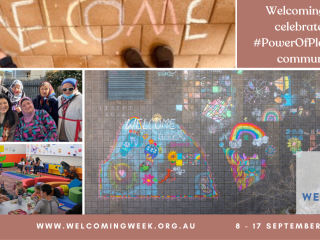International Education is not a tap

Australia’s international education sector stands at a critical crossroads, facing challenges that threaten its viability and integrity. Long celebrated as a cornerstone of economic growth and cultural diversity for the sector, international education now finds itself constrained by governmental policies, economic imperatives, and societal misconceptions.
In recent years, international education has burgeoned into Australia’s largest services export industry, contributing a staggering $48 billion annually. This sector not only cushions the national economy but also underwrites the research capacity of universities nationally. Yet, despite its economic importance, the sector faces systemic issues.
International students are critical for their economic contributions to universities, and to the wider economy, plus their workforce participation is needed to sustain key industries. Despite this, international students and international education, is regularly treated as a tap that can be turned on and off, creating a dynamic in which students feel at best unsupported and misunderstood, and at worst, marginalised and exploited.
The Australian government’s recent proposal to cap international student numbers has sparked widespread concern from the sector. Citing strain on housing and social services, policymakers aim to stabilise student inflows temporarily. But this short-sighted approach ignores the significance of international education to the sustainability of key aspects of Australia’s economy and to the viability of higher education in this country. This approach again seems to be based on the belief that international students can be turned off for a while and turned on again at some future point.
To safeguard the future of international education a multifaceted approach that transcends economic metrics is needed. First and foremost, international students must be valued beyond their financial contributions. Their voices should be integral to policy formulation, ensuring that their needs and experiences are central to decision-making processes, and that they are treated as more than a financial resource.
Moreover, universities and government bodies must collaborate to enhance support structures for international students. Clear pathways to employment and fair working conditions are essential to mitigate exploitation. Addressing discrimination and fostering inclusivity are equally critical steps toward building a supportive environment for all students, regardless of nationality.
The narrative surrounding international education must shift from mere economic benefit to encompass its profound cultural and diplomatic contributions. Emphasising cross-cultural learning and global citizenship will enrich the educational experience and bolster Australia’s reputation as a welcoming destination for students worldwide.
Moving forward, urgent action is needed from both the university sector and governmental bodies. Collaboration is key: universities must lead efforts to integrate international student perspectives into policy development. This entails not only amplifying their voices but also implementing inclusive practices that foster a sense of belonging within the broader community.
Furthermore, there is a pressing need to innovate in how international students are engaged and supported. Regional universities, often overlooked in favour of their metropolitan counterparts, can play a pivotal role by developing unique, community-driven initiatives that cater to diverse student needs.
The reality is that the future of Australia’s international education sector hinges on a paradigm shift—one that prioritizes inclusivity, support, and dialogue. By championing these principles, stakeholders can uphold the sector’s integrity while harnessing its full potential as a global leader in education and cultural exchange.
Cate Gilpin is the Welcoming Universities Coordinator at Welcoming Australia. Welcoming Universities is an initiative to inspire and support Australian universities to embed welcoming, inclusion and belonging for students, staff and community members from all backgrounds.
This article was originally published on the Koala, International Education News, here and is republished with permission.




Leave a Reply